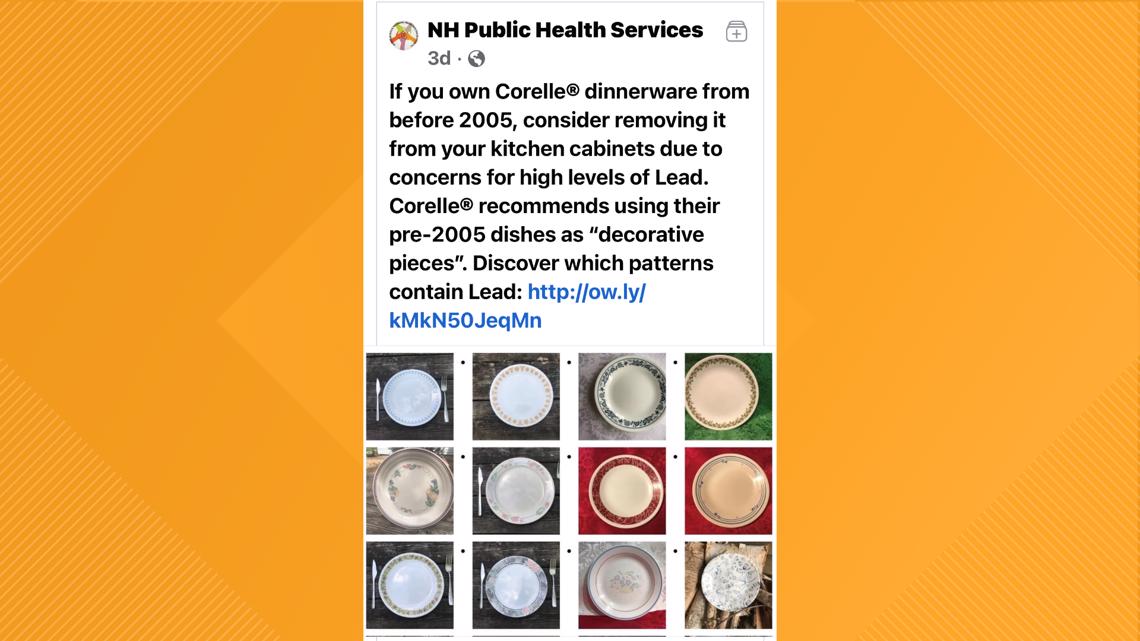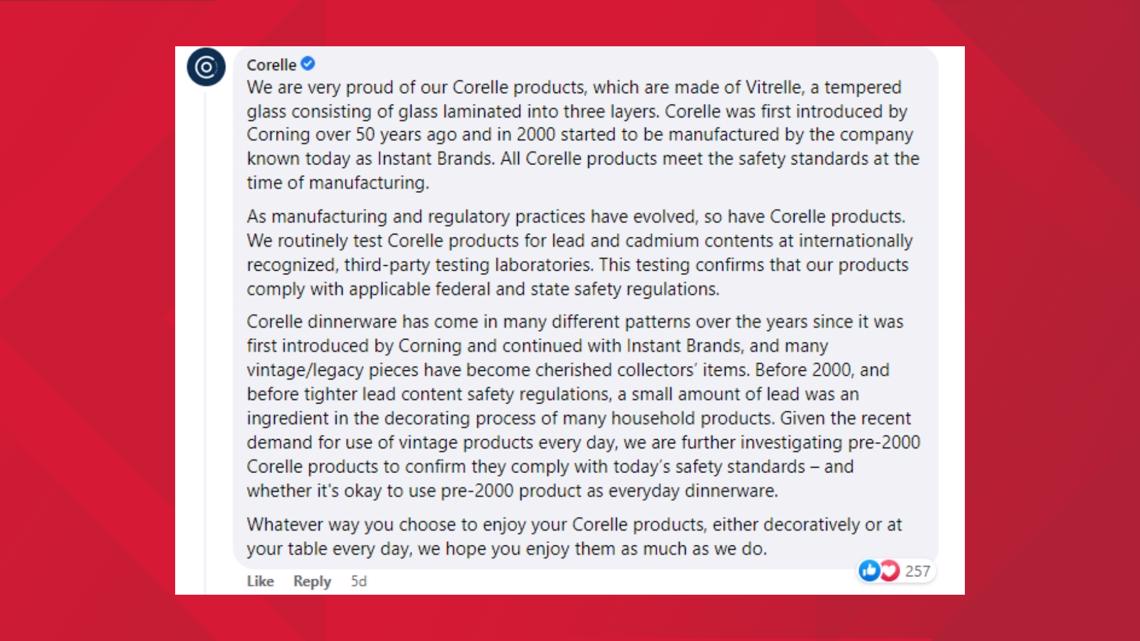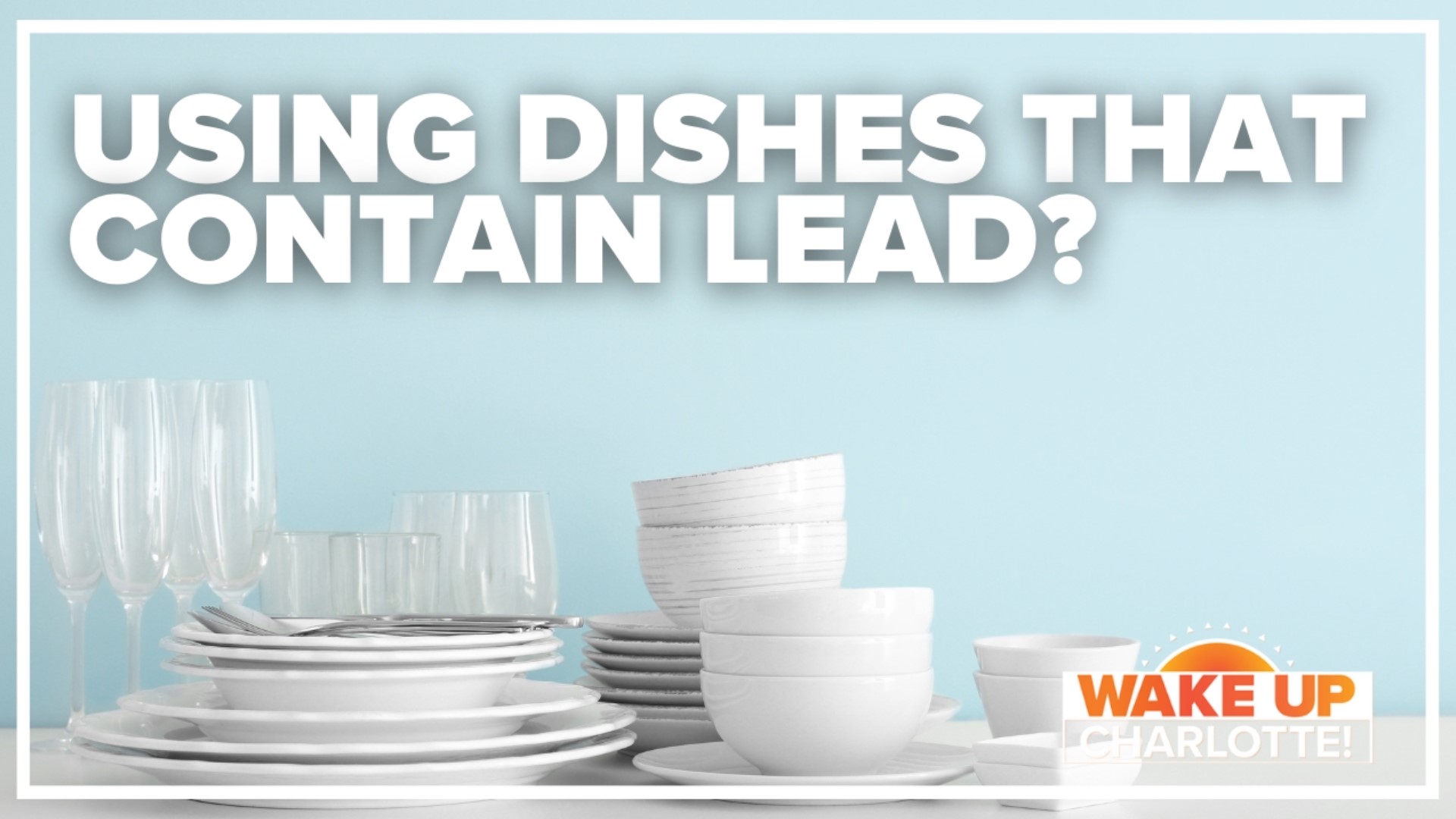CHARLOTTE, N.C. — We got an email from Vickie H. asking us about a claim she saw on social media. It was from the New Hampshire Public Health Services Facebook page.


The post read:
If you own Corelle dinnerware from before 2005, consider removing it from your kitchen cabinets due to concerns for high levels of lead. Corelle recommends using their pre-2005 dishes as quote “decorative pieces.”
THE QUESTION
Is it safe to eat off of dishes that might contain lead?
OUR SOURCES
THE ANSWER
No, it is not safe to eat off of dishes that might contain lead.
WHAT WE FOUND
In your home, lead is mostly found in paint, especially if your home was built before 1978.
“Homes that were built in the 70s, or even older homes certainly could have lead-based paint," Dr. Robinson said.
Lead-based paint was officially banned in 1978. The FDA started to regulate lead levels in dishware in 1971.
“So these dishes that are being treated, some of them are have been painted, as well, may have traces of lead or in the preparation process, they may have been exposed to chemicals containing lead," Robinson said. "And so, you know, it's not something we often think about as dishware being a potential source of lead poisoning, but anything that could have had lead-based paint, or lead-based chemicals, is certainly something you want to think about."


On the original Facebook post, Corelle responding saying:
"We are very proud of our Corelle products, which are made of Vitrelle, a tempered glass consisting of glass laminated into three layers. Corelle was first introduced by Corning over 50 years ago and in 2000 started to be manufactured by the company known today as Instant Brands. All Corelle products meet the safety standards at the time of manufacturing.
As manufacturing and regulatory practices have evolved, so have Corelle products. We routinely test Corelle products for lead and cadmium contents at internationally recognized, third-party testing laboratories. This testing confirms that our products comply with applicable federal and state safety regulations.
Corelle dinnerware has come in many different patterns over the years since it was first introduced by Corning and continued with Instant Brands, and many vintage/legacy pieces have become cherished collectors’ items. Before 2000, and before tighter lead content safety regulations, a small amount of lead was an ingredient in the decorating process of many household products. Given the recent demand for use of vintage products every day, we are further investigating pre-2000 Corelle products to confirm they comply with today’s safety standards – and whether it's okay to use pre-2000 product as everyday dinnerware.
Whatever way you choose to enjoy your Corelle products, either decoratively or at your table every day, we hope you enjoy them as much as we do."
But if there is lead in the dishes would they still be okay to sit out as decoration as Corelle mentions?
“So the huge issue with lead and lead poisoning is that you have to ingest it in order for it to affect your system. So just having it in your home is not, you know, pose the same threat as it does if you actually ingest it,” Robinson said.
VERIFY is dedicated to helping the public distinguish between true and false information. The VERIFY team, with help from questions submitted by the audience, tracks the spread of stories or claims that need clarification or correction. Have something you want VERIFIED? Text us at 704-329-3600 or visit VERIFY.

